Play and therapy pool ease trauma for Ukrainian refugee girl in Poland
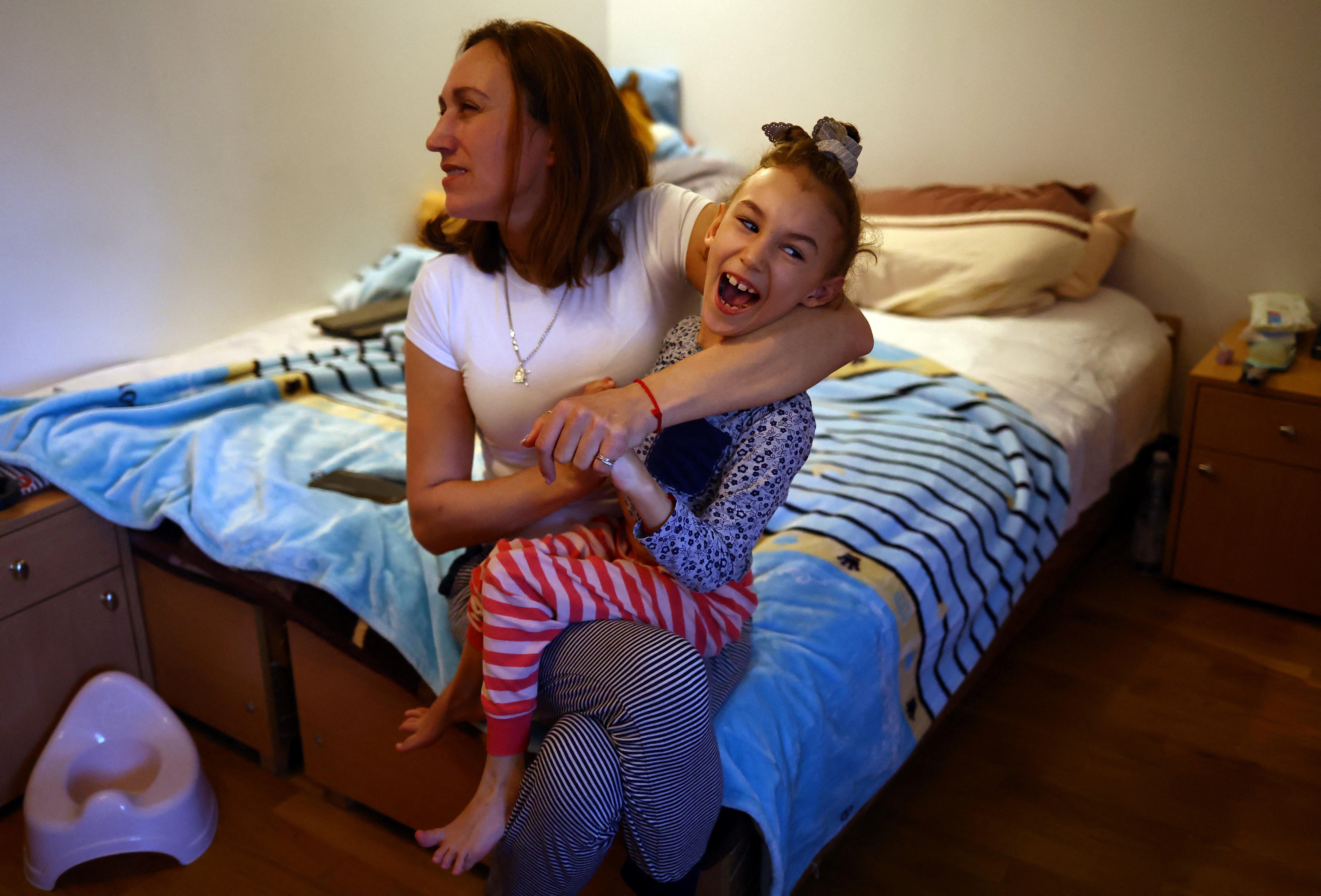
Alevtina is all smiles as she cuddles her mother, Alexandra Zhuravel, in their bedroom at Poland’s Benedictine Sisters Monastery, a world away from Kryvyi Rih in central Ukraine.
Her joy in that moment masks the fear she shows each time the tranquillity around the 17th century monastery where she, her sister and her mother have found refuge is broken by a loud noise from a car or an aircraft overhead.
The eight-year-old has cerebral palsy and cannot speak.
Alexandra spends her days walking through the gardens with her girls and eating with other refugees.
Locals have helped her find a pool to resume therapy for Alevtina and dance classes for elder daughter Viktoria, 12. The guards who helped them at the border as they fled their home return to check up on the family.
“The children were really scared of the sirens and the explosions,” Alexandra, 38, said while pushing Alevtina through the monastery’s sprawling gardens in a specialised stroller.
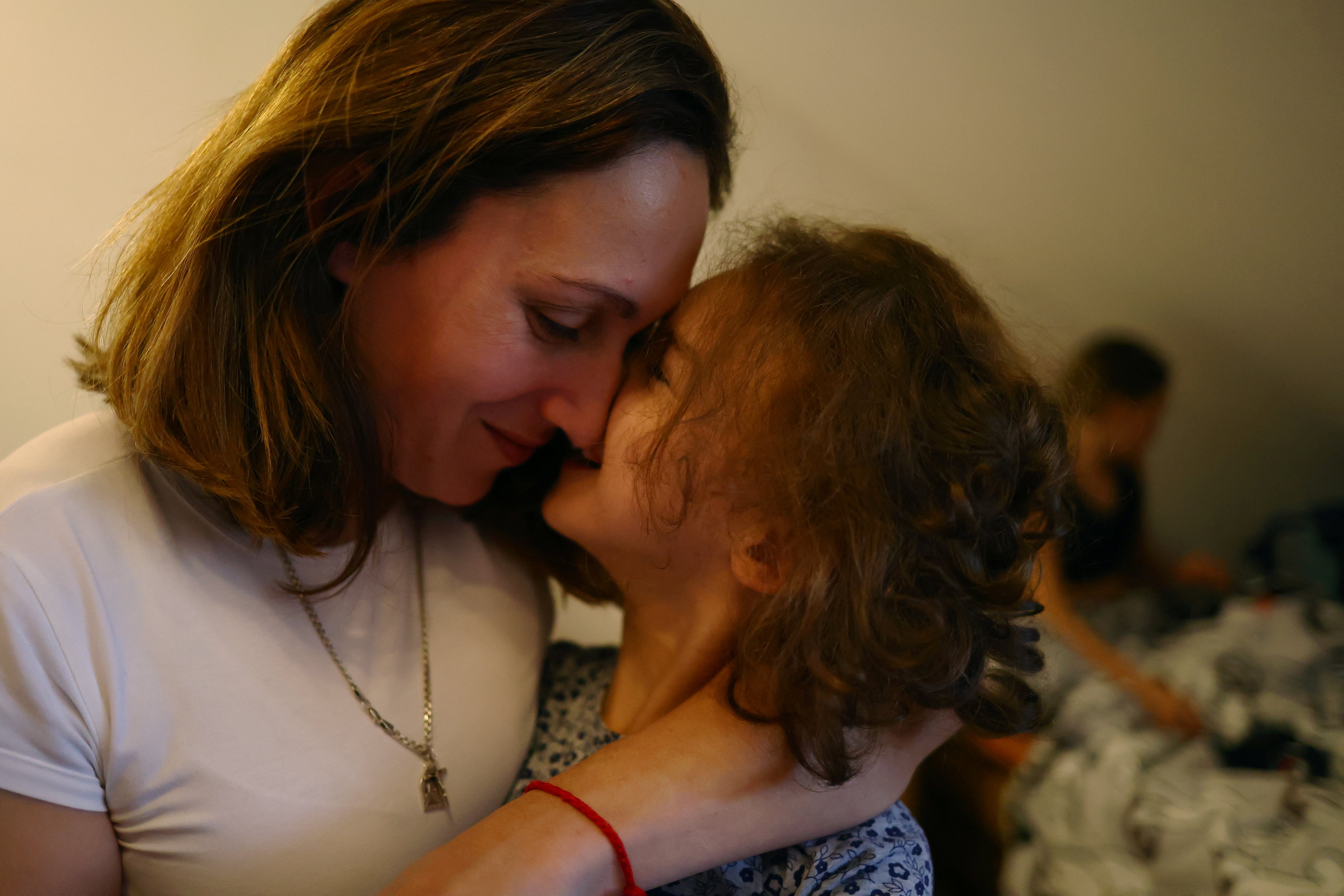
“Alevtina is still very scared,” she said. “She is under constant stress and we try to distract her by going to the pool and taking walks. We try to walk as much as possible and play outside and bit by bit she is getting through it.”
The six nuns who run the monastery provide meals in the cafeteria and locals have helped with financial assistance, clothing and toys, which include two teddy bears perched on the windowsill of their small room.
But each day since they arrived in Poland on 12 March brings different challenges. When a helicopter hovered above, the normally smiling Alevtina curled into a ball as her eyes filled with fear due to the noise Alexandra says her daughter associates with war.

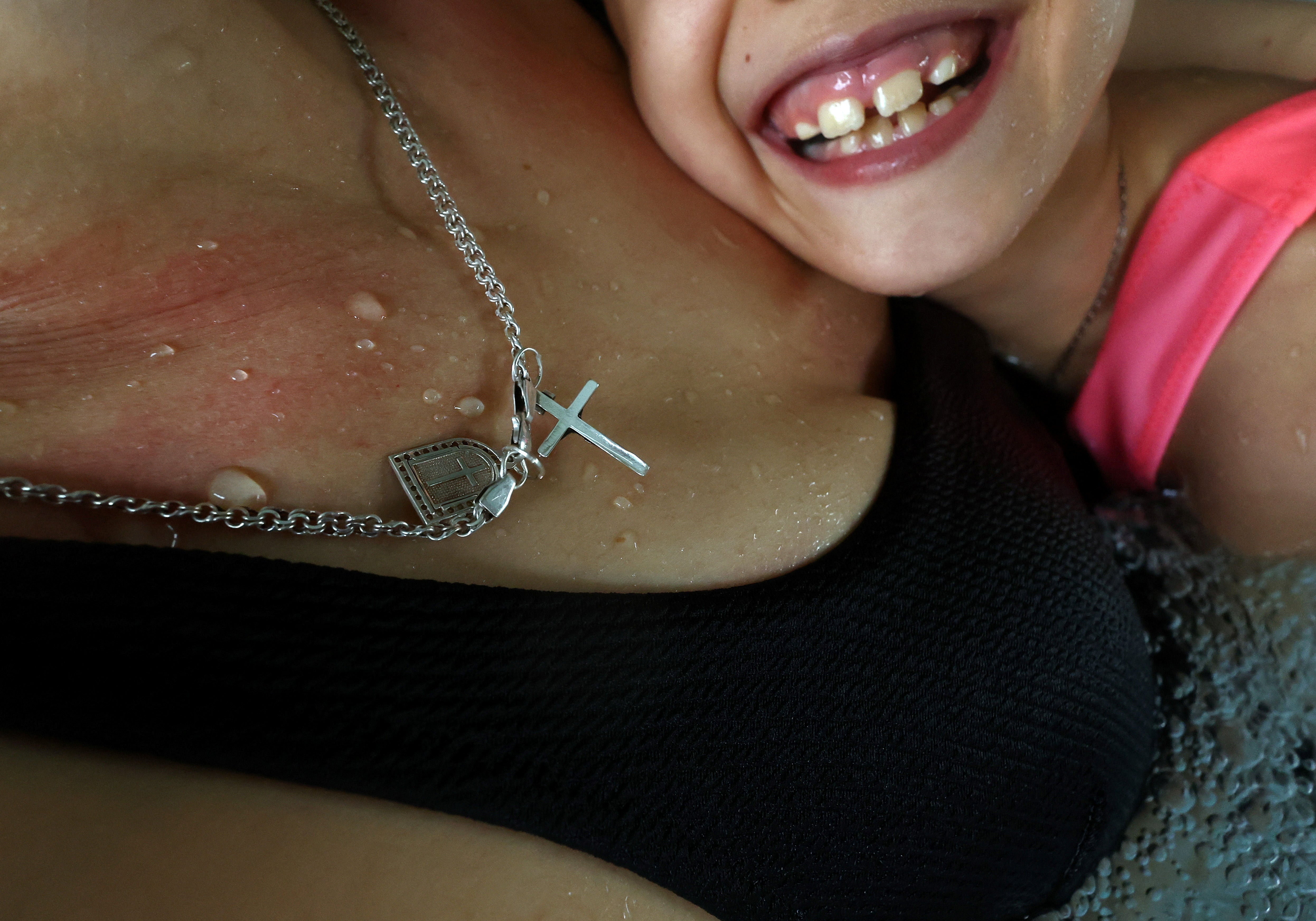
Suitcase packed
Alexandra had wanted to stay in Ukraine but her son insisted they escape because the shelling and explosions were terrifying for Alevtina as the villages next to their home city came under attack.
Russia has denied targeting civilians in what it calls a “special military operation” to demilitarise Ukraine.
The family first went to the other side of the city but the next morning, on 10 March, they were convinced to leave, Alexandra said.

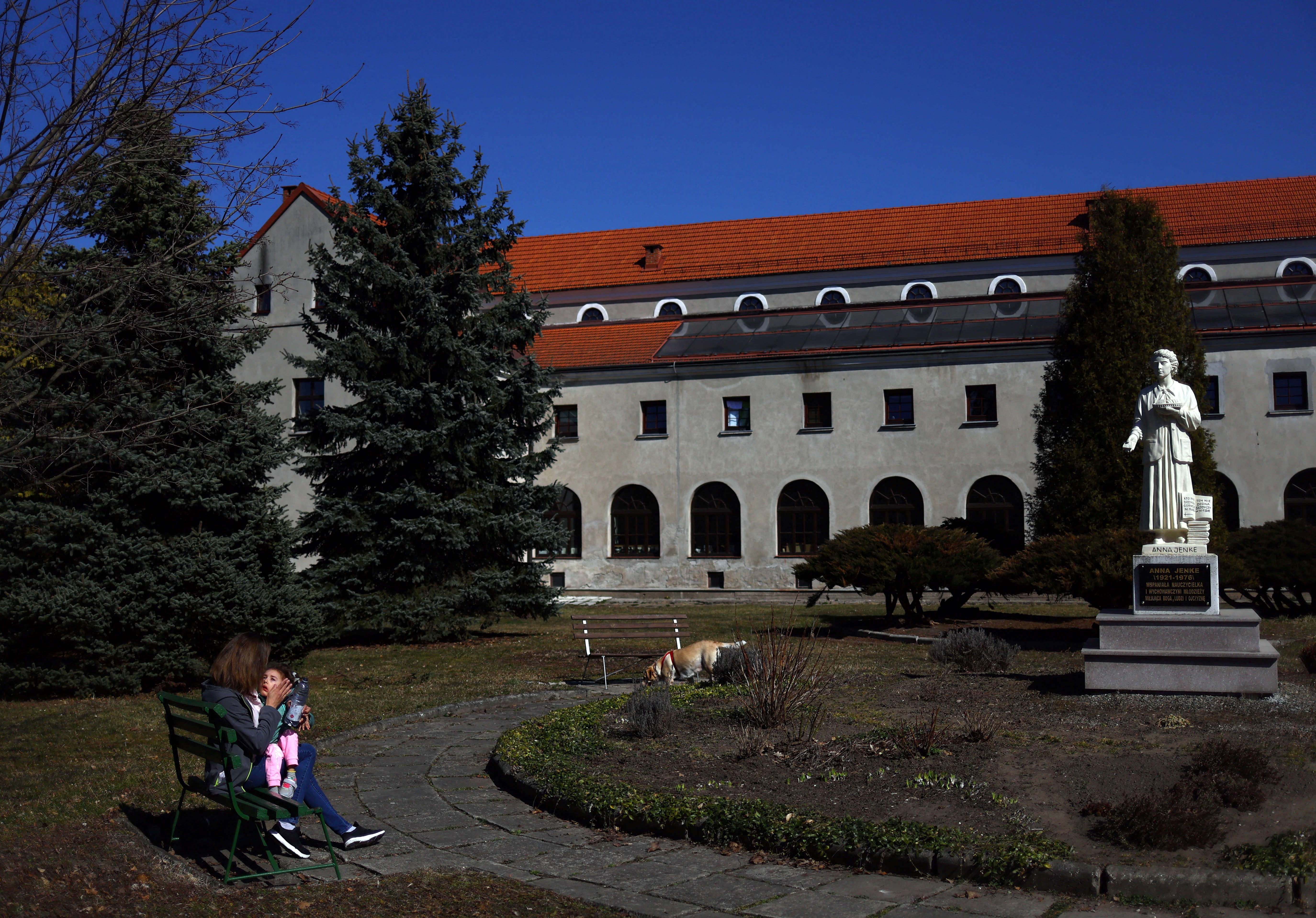

“He forced us to leave,” she told Reuters, referring to her 18-year-old son who was a student before Russia’s invasion on 24 February. “He said ‘Mother, how will you hide with Alevtina? Alevtina is afraid of sirens, Alevtina is afraid of everything’.”
The family boarded a train to Lviv with pet dog Luna before making their way to Poland, where Alexandra recounted the kindness of volunteers who helped find them housing and guards who carried Alevtina’s stroller across the border.
The fighting has displaced more than 10 million people and forced more than four million to leave Ukraine in Europe’s biggest refugee crisis since the end of the Second World War, according to the UN refugee agency.


More than half of the refugees – like Alexandra and her daughters – have crossed into the European Union through Poland, which shares a 535km border with Ukraine.
Other refugees have moved on to other towns or countries but Alexandra has chosen to remain in Jaroslaw, 40km from the border, so she can be close enough to return to her son and her city as soon as she can.
“Every morning I am waking up hoping that someone will call or text me that now we can go back home,” she said. “Every day, that is all I am waiting for. Our suitcase is packed, and we just wait for a call.”
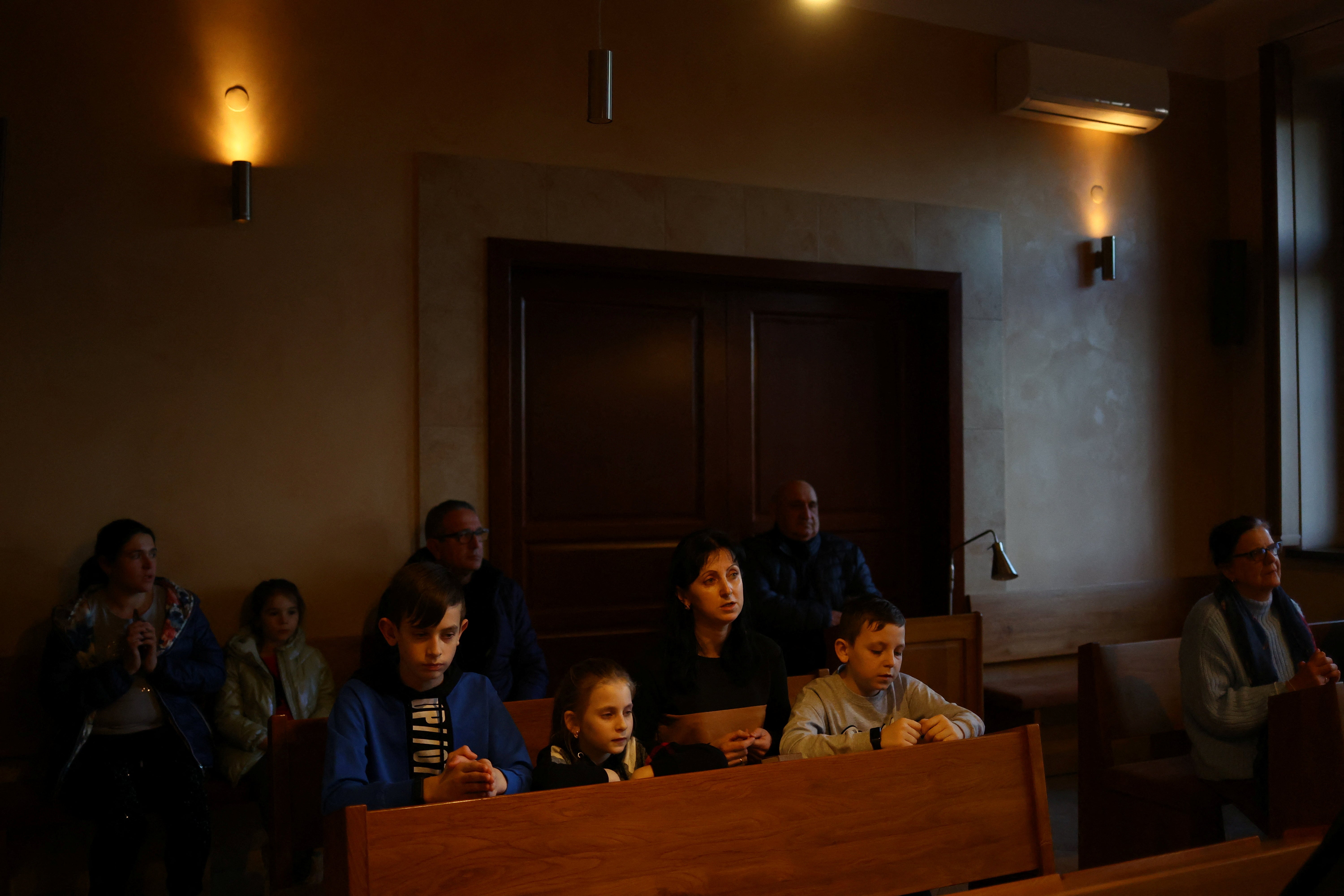

Photography by Hannah McKay, Reuters
Join our commenting forum
Join thought-provoking conversations, follow other Independent readers and see their replies
Comments
Bookmark popover
Removed from bookmarks